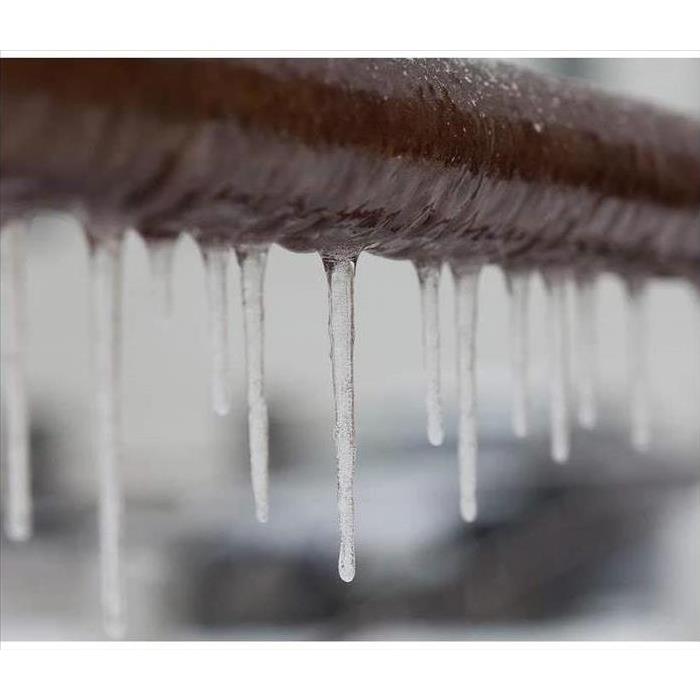Rare cold front can lead to frozen pipes and water damage
1/22/2020 (Permalink)
North Florida is experiencing one of its rare sub-freezing winter cold fronts and that can lead to big problems when it comes to your pipes if you’re not prepared. Since frozen water expands, it can place pressure on pipes. And if you have leaking pipes or an inefficient heater, when the weather warms up and your pipes thaw, you could be in for a huge mess.
Here are some tips for when that arctic blast hits your property.
Prevention
Before the cold weather hits, you can protect and prevent frozen pipes by:
- Insulating any exposed pipes in your home, especially ones that are in your garage, basement, crawl space, or under kitchen and bathroom cabinets.
- Make sure your thermostat is set for a constant temperature in the daytime and at night.
- Close indoor valves that supply water outdoors and open the outside valve to drain any excess water in your pipes.
- Proper HVAC equipment maintenance will provide with an efficient heater. Also make sure you have the correct amount of insulation in your attic and walls and make sure you have sealing around your windows and weather stripping around your doors.
- If the weather plummets well below freezing for an extended amount of time, let your faucet trickle. Running water is more likely to keep the pipes from freezing.
- If you are going on vacation, keep thermostat set for no lower than 55 degrees. And it wouldn’t be a bad idea to turn the water off to your washing machine.
Thawing Out a Frozen Pipe:
- If you turn on a faucet and only a few drips come out, you may have a frozen pipe. Typically, frozen pipes are found along exterior walls or where your water service enters your home through the foundation.
- Leave the faucet on while treating any frozen pipes, as flowing water will help melt the ice.
- Apply heat to the frozen section of the pipe by using an electric heating pad, an electric hair dryer, or wrapping pipes with towels soaked in hot water. Do not use a blowtorch, kerosene or propane heater, or other open flame device.
- Check all other faucets in your home to see if you have additional frozen pipes. If one pipe freezes, others may freeze too.
If a pipe bursts:
- Shut off water at the main valve.
- If the break is in a hot water pipe, the valve on top of the water heater should be closed.
- Call SERVPRO of Gainesville West- Alachua County West to clean up the mess as quickly as possible. Keep an emergency number nearby for quick access.
Remember, pipes freeze when they’re exposed to temperatures below 32 degrees for a few days. The cold weather makes pipes brittle and will ice up in two main areas – water coming in and water going out. You know water coming in is frozen because nothing comes out the tap. Frozen outgoing pipes from showers, toilets and sinks are a bigger problem because these will back up into the house; that's the reason it's always recommended to keep a little water dripping into the sinks and opening the cabinet doors under the sink since running water doesn't freeze as easily as standing water.
You can contact SERVPRO any time of the day or night for emergency services. Our number is 352-374-6589.

 24/7 Emergency Service
24/7 Emergency Service
